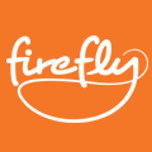Reflections from a Type A Mom

Emmy Heaton
Hi I'm Emmy, mum to AJ who has cerebral palsy.
In the fifth grade, our class was in the midst of a losing a reading contest, so I read The Hunt for the Red October in three days -- all 656 pages.
Pizza party for everyone.
I breezed through high school and college, seeking out challenges wherever I could find them.
Advanced Latin for my language requirement. Yearbook editor. Discus and high-jump. Basketball statistician. Winter, "Snow Queen", cabinet. Church handbell choir. State champion public speaker. Pit orchestra. Et cetera, et cetera.
At the time I gave birth, I was establishing a communications department for an international company.
I consider it a gift from my father.
He is the same way and has made many significant contributions with his life.
Our love for learning is a deeply cherished parental-daughter bond.
At the same time, it has sparked ugly worry as a mother myself.
What if my son isn't... smart?
Logically, intelligently, emotionally I know the answer is that it doesn't matter.But for a long time, I kept the question secret because I was so ashamed.
We don't fully know how my son's encephalopathy and hydrocephalus will affect his executive functioning and cognitive abilities in life. He's only three. Even still, at this young age, I've been hyper-concerned about his skills in vocalizing colors, or knowing animal sounds, or watching him struggle to pull down his pants.
We have had physical therapists, occupational therapists, speech language pathologists, special education teachers, adaptive learning techniques -- and about 12 different medical specialists and geneticists.
I secretly seethed inside whenever another mother said to me, "Oh, you watch. He'll learn how to walk someday. He'll be just fine."
Those same mothers were engaged in major bragging wars about how exceptional they wanted their own child to be. Who knew their alphabet first. Who could scale a bookshelf. Who was already ice-skating. Who could build an empire out of Legos.
I sat there politely holding a coffee mug many times as they talked around me.
I didn't exactly want to be part of the war, yet I was totally resentful about my son about being passively dismissed as an adorable non-threat.
I have witnessed in a clinic lobby as two doctorate-holding parents refused to accept their son's speech evaluation because it was just a phase, not a characteristic -- their son wasn't "that" kind of kid, they said. In other words, my kind of kid.
"They're definitely not the first academic parents to resist," sighed our pathologist. I smiled, grimly.
I feared my son would be irrelevant.
Don't expect too much from that Barbero boy, but whatever he could end up doing, that's just great. Good for him. He's a cutie.And then, just before three years old, I had a beautiful awakening.
"He's smart," my Dad said one day as we were drinking green tea and watching my son play with trains.
The comment surprised me. People don't really call my son smart. They say he's cute, or happy, or adorable, or handsome. But not smart.
"You think so?" I asked.
"Sure! Look at the way he problem-solves, the way he figures out how to work around challenges with toys or movement. He's been that way ever since a baby - watching things people do, figuring out how to get something when he couldn't walk, knowing what you're saying even if he can't talk. He's smart in his own way, and I think he happens to be really, really smart."
I didn't realize how much I had wanted someone else to say it.
I knew it, I saw it every day. I truly wasn't worried that my son wasn't smart -- I was worried that the world wouldn't see him as smart.
I was worried the world wouldn't see him.
So I stopped worrying about the world, and I went back to enjoying him.
With my son, I have a whole new excuse to explore the world in a new adventure -- to see it through his eyes. To watch him grow, and learn, and react.It has also healed me, in a way. I no longer consume as much as possible -- for the first time ever, I set down a book that I was disinterested in and didn't force myself to finish it.
Now I relish in the experience of discovering an essay or recipe or album that really sparks interest for me.
Instead of seeing it as something to be conquered or checked off a list, it's now something to be shared with my husband, my son, my friends and family.
It's the act of learning that sparks my joy, and it's my son who has turned me into a true student, not just a do-er.
I couldn't be prouder of or feel more connected to that bond.


